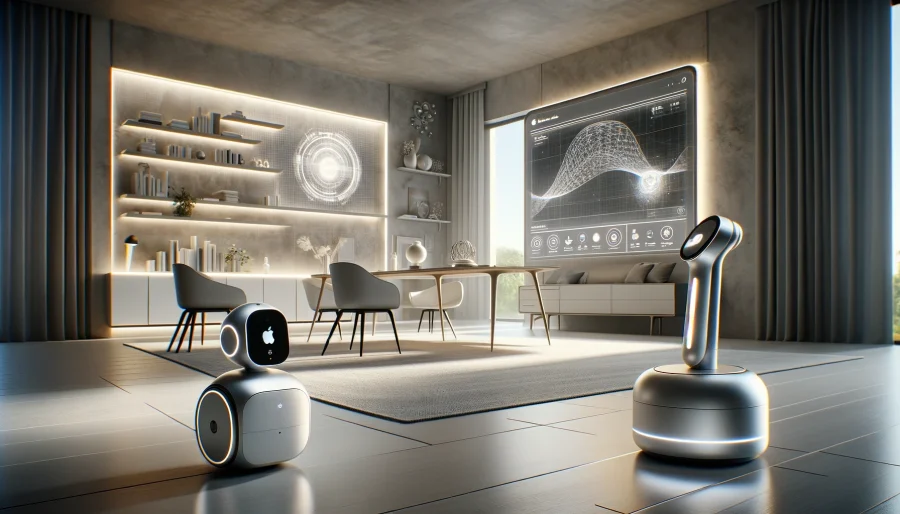Apple is delving into the realm of personal robotics, a move that could redefine the tech giant’s future offerings. According to insiders interviewed by Bloomberg, Apple’s foray into robotics includes a mobile robot designed to follow users around their homes and an advanced table-top device featuring a robotic arm to move a display. This exploration is part of Apple’s efforts to diversify its product lineup and find new revenue streams, especially after shelving its electric vehicle project and while its mixed-reality ventures are still gaining traction.
Under the guidance of the company’s hardware engineering division and AI and machine-learning group, led by John Giannandrea, these projects signal Apple’s ambition to integrate more deeply into consumers’ homes through advanced technology. However, these initiatives are still in the nascent stages, and their eventual release remains uncertain.
Apple’s home robotics revolution
Among the projects, the robotic smart display has attracted attention within Apple, intriguing senior executives with its potential to revolutionize video calling by mimicking head movements and focusing on specific individuals in a group. Despite this interest, concerns about consumer demand and technical hurdles, like the balance of robotic motors, have stalled definitive progress.
Apple’s venture into personal robotics aligns with its strategy to pioneer in uncharted technology territories. The company’s historical focus on groundbreaking products, from the iPhone to the more recent Vision Pro mixed-reality headset, underscores its continual search for the “next big thing.” Robotics offers a unique opportunity to merge AI advancements with practical, everyday applications, potentially transforming how users interact with Apple products at home.
The tech industry has witnessed various attempts at introducing personal robots, such as Amazon’s Astro and the enduring popularity of the Roomba vacuum. Apple’s entry into this market could shake up the competition, leveraging its expertise in hardware design, software integration, and consumer trust. Yet, the challenge of creating a robot that genuinely adds value to the home environment is significant, requiring innovations that go beyond current offerings.
With job postings for robotics-related roles, Apple is evidently ramping up its efforts in this field, hinting at a long-term commitment to developing intelligent robotic systems. While the tangible outcomes of these projects are yet to be seen, Apple’s exploration into personal robotics could mark the beginning of a new era for the company and its users, promising a future where technology serves not just as a tool for communication and entertainment but as an integral part of the home.






















